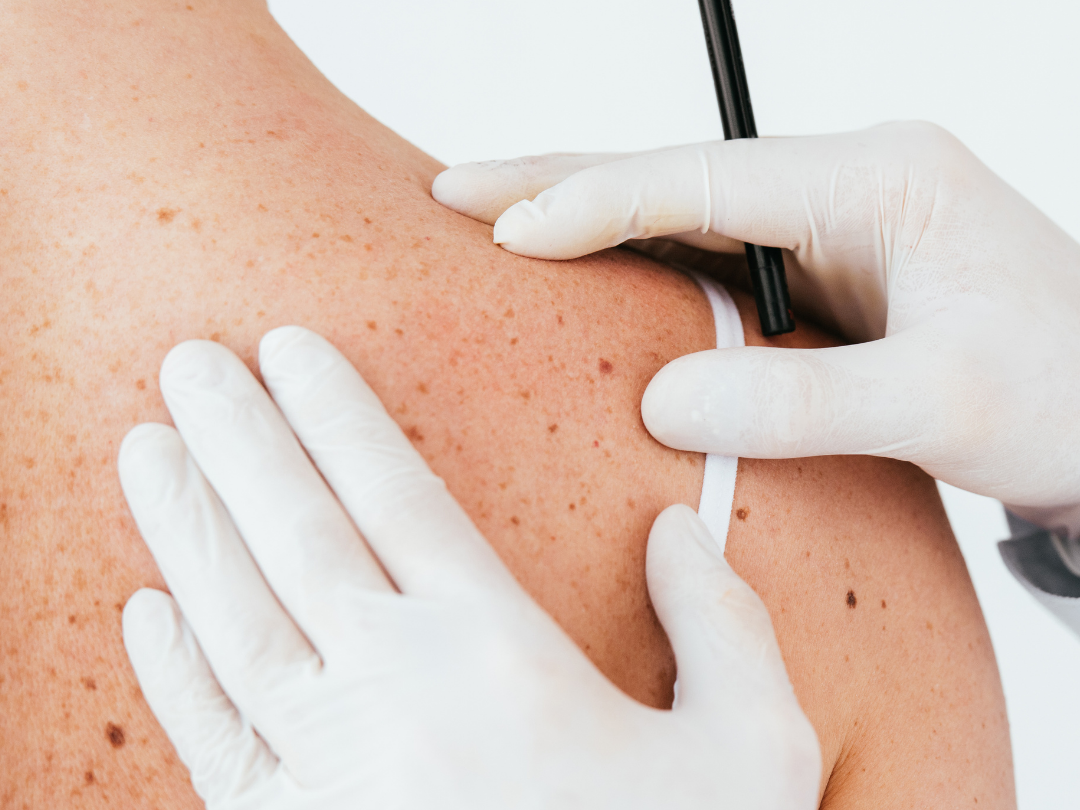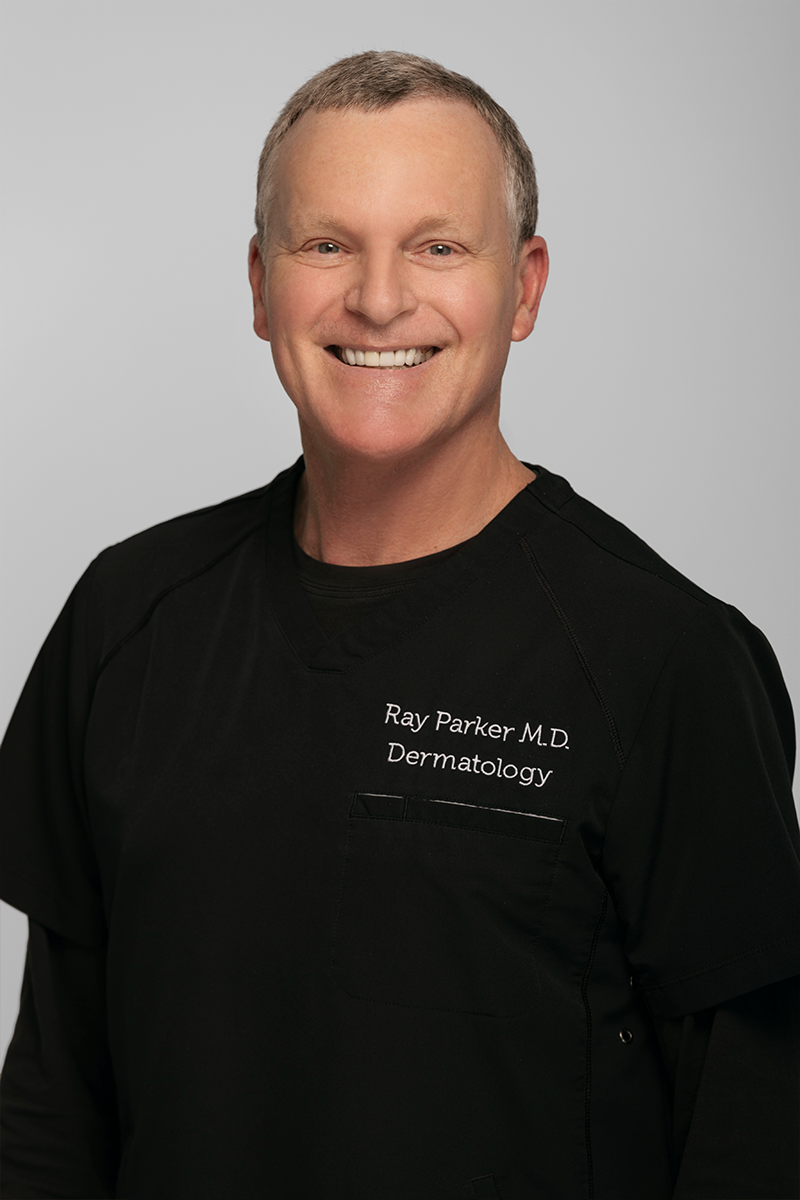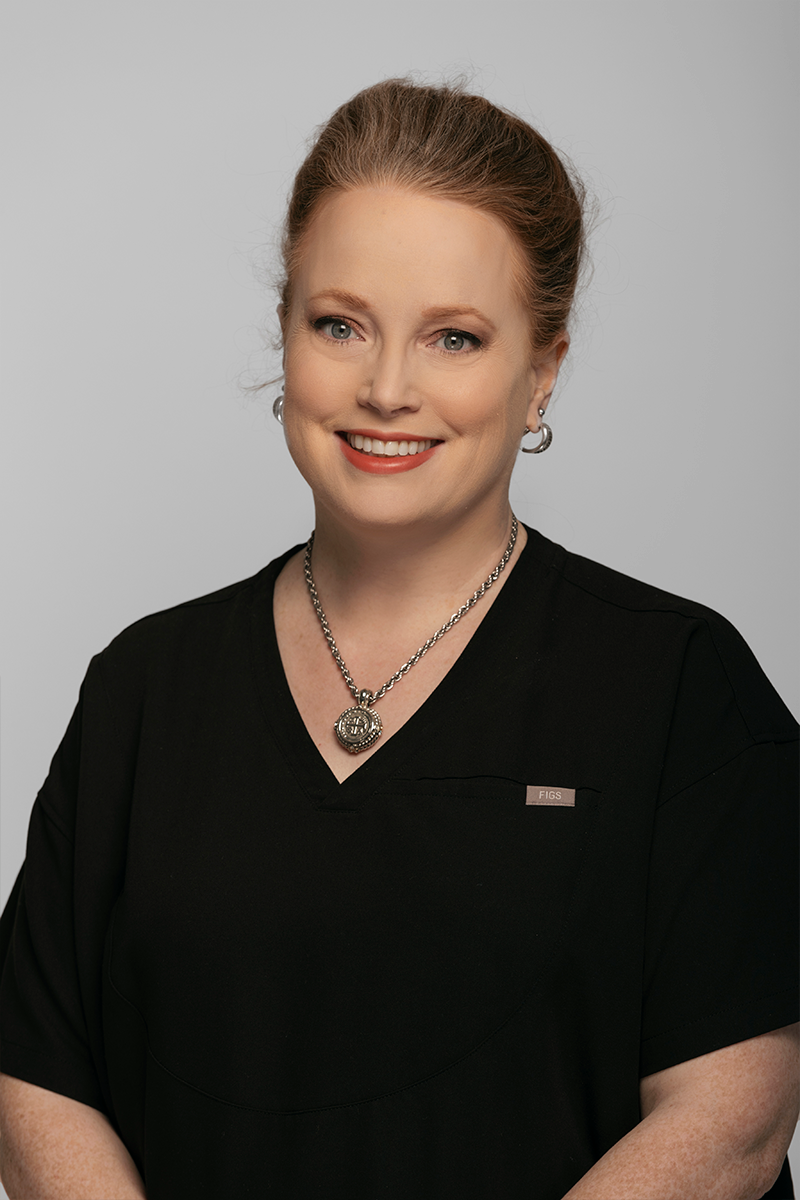Moles
Identify and Monitor These Pigmented Growths in the Little Rock Area, Central Arkansas, and Beyond
Moles are a very common medical condition. Most people have roughly 10 to 40 of the pigmented clusters of cells—technically known as pigmented or melanocytic nevi—on their skin. While the majority of such spots tend to be benign, colored lesions may also indicate the presence of skin cancer. When it comes to moles, the Little Rock area’s Dermatology Group of Arkansas advises everyone to perform regular self-exams on their skin and to show any changing or otherwise unusual growths to one of our dermatologists for further evaluation.
We have a large population of patients who require regular screening of their moles, and we have worked to build a relationship with each individual in order to provide the best ongoing care possible. Whether you simply want peace of mind that a spot is nothing to worry about, have a prominent lesion you want removed for cosmetic reasons, or are deciding how best to move forward with a cancer diagnosis, our team of experienced dermatologists is prepared to help.
Contact Us Today
Schedule your consultation for moles for Little Rock, all of Central Arkansas, and beyond today. Call us at the Dermatology Group of Arkansas at 501-227-8422.

The Basics of Moles
Pigmented cells are typically spread evenly throughout the skin, giving the entire surface its generally uniform color. In some areas, however, pigmented cells group together in high concentrations, creating spots that may be flat or raised, small or large, round or shaped differently.
Moles tend to be dark-colored, slightly raised, larger than freckles, and generally round. They are also often found in groups.
The main concerning factors to watch for in moles can be summed up as ABCDE. A is for asymmetry as opposed to a shape that has two roughly mirrored halves, B is for a border that appears scalloped or indistinct, C is for colors beyond what would be expected (including multiple colors in one lesion), D is for a diameter larger than a pencil eraser, and E is for evolving. Because skin cancer involves rapidly dividing cells, a lesion that visibly changes in appearance over time is a definite warning sign. Also, if one of your moles is growing, itching, bleeding, or just looks different from your others—known as an “Ugly Ducking”—please make an appointment to have that lesion evaluated.
Meet Your Doctors
Meet Your Doctors
Meet Your Doctors
What Treatments Are Available for Moles?
The Dermatology Group of Arkansas offers a range of treatments for malignant lesions, which we can discuss at a consultation after a diagnosis has been made.
For moles that are strictly a cosmetic nuisance, we provide removal strategies that depend in part of the location of the mole and patient preference. Some patients choose to keep their benign spots to give them a unique appearance, while others prefer to have a totally clear surface. The important thing to know is that the choice is yours.

Contact Us Today
Contact the Dermatology Group of Arkansas today for moles in the Little Rock area. Call 501-227-8422.
Stay In Touch
Our team at Dermatology Group of Arkansas is looking forward to hearing from you and building a relationship to help you get your best skin possible. Follow us online, reach out to us directly to set up a meeting, or both!














